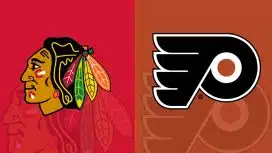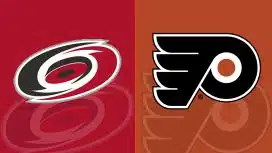Posted by Kevin Durso
Roy Halladay took a loss during the Phillies' eight-game losing streak. (Courtesy of SI.com)
This might sound impossible, but calm down, people. Yes, the Phillies just snapped an eight-game losing streak, their longest since 2000. Yes, if not for a win today, they would have lost nine straight, most since an 11-game losing skid in 1998. Yes, this is not the ideal way to go into the playoffs. But it’s not everything, and it’s not the end. Not yet anyway.
The Phillies might be on their worst stretch of the season, but taking a closer look, more of these games have hidden meanings in them. Did anyone actually look at the specifics of each loss – the reasons behind why the Phillies dropped them – or did you just chalk it up with the rest? Here’s a quick look at each loss, and a main source to the loss.
Sept. 18 vs. STL – A day after clinching the NL East, we can easily just call this a “hangover” game. Cole Hamels was the main problem, as he allowed four runs and got the Phillies in an early hole. But the Phillies had offensive chances, and lost them with unlucky hits, like the three double plays in the early innings that killed any rally chance.
Sept. 19 vs. STL – Roy Halladay also had some trouble early, but two runs should never be too much to comeback from. Additionally, the Phillies rallied for one run in the second, before giving it right back. The Phillies’ offense primarily lost this one, as they did manage 10 hits, but far too many of them came way too late.
Sept. 20 vs. WSH (Part 1) – The most blame from Game 1’s loss could go to Charlie Manuel, who chose to go to his bullpen after six shutout innings from Kyle Kendrick in a scoreless game. That move didn’t completely cost him, as the Nats’ three-run shot in the seventh was answered by the Phils, but the bullpen’s overuse was showing, and Mike Stutes went on to suffer the loss.
Sept. 20 vs. WSH (Part 2) – This one is pretty simple. The magic number is three. Why? The Phillies managed just three hits, the Nationals’ three runs were plenty, and the Phillies also had a night to forget in the field, committing three errors.
Sept. 21 vs. WSH – Vance Worley was cruising right through his first few innings after a minor hiccup in the second. The Phillies even managed some runs, giving them their first lead in the series. Worley couldn’t get around Danny Espinosa in the sixth, but the Phillies were only down one, and had put together some late chances in their previous losses. The pitching carousel in the Nationals’ three-run eighth – featuring Justin De Fratus and Antonio Bastardo – was the main reason for this one. The Phillies went on to score two runs in their half of the eighth, and make a charge in that inning, but the damage had been done on this night by the Nationals’ eighth inning flurry.
Sept. 22 vs. WSH – Roy Oswalt didn’t make one mistake in his first seven innings, yet he had allowed two runs. The Phillies’ defensive mishaps continued, and led to two runs. The Phillies had just two hits through the first eight innings – both by Carlos Ruiz – then left Oswalt in with two outs after giving up a two-out RBI double that nearly left the yard. One batter after Charlie Manuel visited with Oswalt on the mound, Mike Morse did leave the yard, and that sealed the deal for the Phillies. Ruiz added his third hit of the night, an RBI single, in the ninth to get the Phillies a run, but that was all.
Sept. 24 at NYM (Part 1) – Again, the offense. The Phillies’ first hit came in the seventh. Their second hit produced a run, and gave them the lead. Cole Hamels was back in old form, as opposed to his Sunday start, but after six shutout innings, where he allowed just three hits, Hamels gave up a two-out solo shot to Valentino Pascucci to tie it. David Wright doubled home the go-ahead run off Brad Lidge in the eighth, and the Phillies’ five hits were clearly too few to win anything.
Sept. 24 at NYM (Part 2) – A combination of timely offense and errors led to this loss. The Phillies stormed to a 3-0 lead. Joe Blanton started and threw two shutout innings. Once he was out, the lead vanished. David Herndon came on first, and nearly saw his way out of the inning, but a two-run error charged to Hunter Pence on a dropped ball got the Mets on the board, and extended the inning. The Mets added three more in that inning, got one in the next, and never gave up anything more. Every Phillies’ chance was gone quickly, and they never had a chance once their early lead slipped away.
So, that’s how the Phillies got to where they are. The team that was 98-52 after clinching the division, 46 games above .500, and just two wins away from 100 wins and four away from a franchise record, is up to a meer 99 wins since. Before the streak started, the Phillies need to go just 2-10 in their final 12 games to win 100. They needed to go just 4-8 to set a franchise record. They had room for a slide to still dismantle the teams of the 70’s. Their freefall may keep the records safe for quite a few.
Yet, that doesn’t hold any weight in anything right now. In all honesty, the only people who care about winning 100 games, and setting a franchise record in wins, are the fans. And maybe that’s where this sense of panic stems from. This doesn’t seem to be panic in the sense of not winning the World Series, or an early playoff exits, it’s more of a sense of running out of time to reach the mark that seemed to be within reach just a week ago. So what? So, you don’t get to see the Phillies set a record. It doesn’t take away from what the players have done all season, and you’ll still remember how this team was a record 46 games above .500. But it never seems to be enough. I’ve got five reasons for each side: reasons to remain calm, and things to be concerned about.
Remain calm, fans
- Lineups – Hunter Pence has been a Phillie since July 31. He’s been a part of the Phillies’ regular lineup just five times, as in, he’s joined the rest of the Phils’ Opening Day starters just five times. In all of those games, the Phillies are undefeated. The Phillies have been filling in for starters all season, so you can’t expect every game to be a win.
- Something to play for – In clinching the division on Sept. 17, and a playoff spot on Sept. 14, the Phillies haven’t had much to play for during their losing streak. Just wait for the calendar to turn to October. That’s when this team turns things on.
- Pitching – The rotation has been great all season. The only thing that may be bad about this stretch is that the pitchers’ numbers have been suffering as a result. While on this stretch, you may have noticed that both Roy Halladay and Cliff Lee looked human in their two starts. That rarely happens more than once in a long stretch, so if they got it out of their system now, that’s good for the playoffs. Cole Hamels also may have had his poor start, and Roy Oswalt is showing signs of life, saying he’s felt better than ever before this season. That’s all good news for the playoffs.
- Winning when losing – The Phillies had won so many games in 2011 that you looked back on and realized they should have lost. It is that winning when you shouldn’t that has simply escaped the Phillies. Mistakes are easier to see when an L is placed on the calendar. If the Phillies had just a few breaks, better luck, or timelier plays, we might be talking about a handful of wins in these eight losses.
- Everything changes in the playoffs – The playoffs are a time when players shine, and they also forget many of their problems. They start saying all the right things, and usually they start acting on them. If the team finds losing the way they are a bit embarrassing, but aren’t panicking, then why should we?
Concern level rising
- Losing to below .500 teams – The way to make the Postseason in baseball is to beat the teams you’re supposed to. I’m pretty sure the Mets and Nationals fall into that category. And while the Cardinals are a strong team, the Phillies were in many of those games, and the Cardinals were one of those teams at one point this season. A little life changes a lot.
- Bullpen – Antonio Bastardo has lost whatever he had midway through the season. Brad Lidge can still be the Brad Lidge of 2009 at times. Mike Stutes looks like his first major league season is catching up to him. Kyle Kendrick and Vance Worley aren’t the same coming out of the bullpen. Joe Blanton is strictly a long man, not a one-inning guy. Ryan Madson might be the only safe pick right now, but these pitchers will not go eight innings every time. When the bullpen’s called, you need to trust every arm you have. The Phillies can’t really say they do right now.
- Slumping regulars/Injuries – Chase Utley has been watching his average drop for two weeks now. Jimmy Rollins is finally getting his timing back. Shane Victorino is working through a slump. So is Placido Polanco. Ryan Howard has bursitis, which is making it hard to run at full force. Hunter Pence has patellar tendinitis, so his running isn’t the same either. Both were having rough times at the plate before hitting the bench for a little rest. The only hope here is that the healthy players turn it up, and Howard and Pence find a way to play through the pain.
- Defense – The Phillies’ defense isn’t a huge problem, because every game is different, and many are rarely like some that they’ve played this week. Errors will happen, but it’s making them few and far between that really counts.
- Momentum – Losing eight straight games isn’t a stretch you want to see for a playoff team in the last week of the season. In most cases, momentum means absolutely nothing. But I feel that momentum is a big deal, because the more you win, the better you feel. The better you feel, the farther you go. The farther you go, the more likely you’re the one holding the Commissioner’s Trophy at season’s end.








